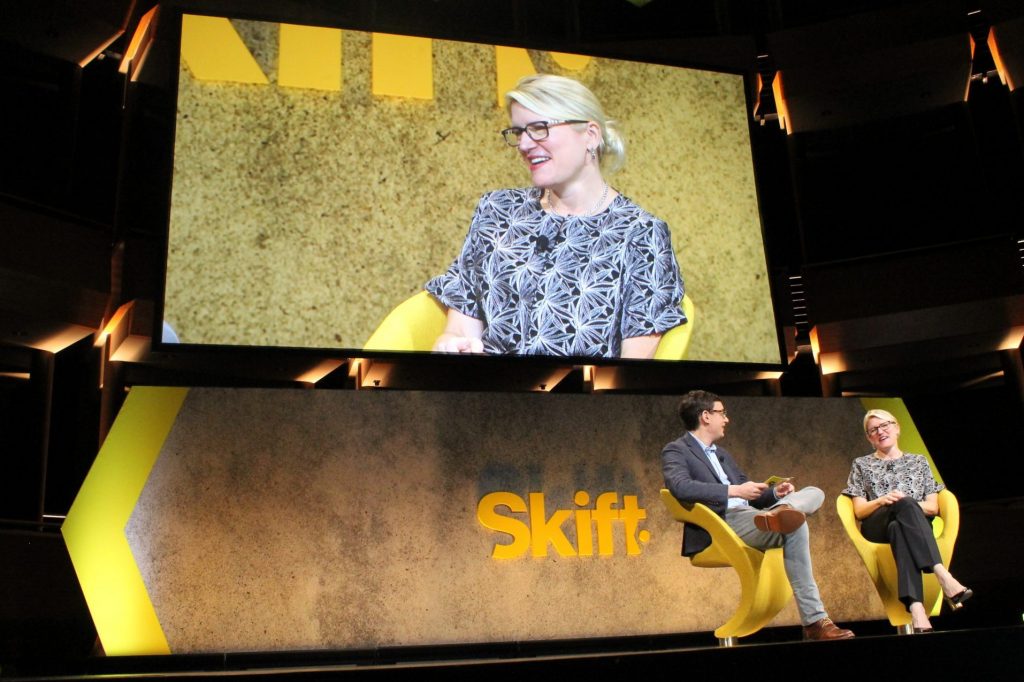JetBlue Still Just Wants to Be Loved

Skift Take
JetBlue is trying to hold on to the qualities that set it apart — and made it a fan favorite — amid increasing competition. President and COO Joanna Geraghty explains why the carrier is still working to prove that air travel shouldn't be a commodity.
JetBlue President and Chief Operating Officer Joanna Geraghty knows the airline’s recent role in leading a round of checked bag fee increases isn’t going to be a fan favorite. But she said Thursday that the carrier is still determined to win customers’ hearts and minds.
“Let’s face it, nobody likes fees,” she said at Skift Global Forum in New York City. “Fees are something that is necessary because it enables carriers to better manage inventories and things like that … but we’re going to be competitive in fees, and we’re going to win on product and the service that we offer.”
That’s crucial for the carrier, which has just a 5 percent market share in the U.S., with heavy concentrations in high-traffic areas such as Boston and New York City.
“We’ve long said that we have a brand and culture that boxes above our weight,” Geraghty said. “If you look at our network and where we’re concentrated, we are in very high-value geography where a lot of people want to fly to and fly out of.”
One geography JetBlue hasn’t yet entered: Europe. While discussion around the airline’s potential entry into the transatlantic space has been heating up in recent months, Geraghty had no news to disclose Thursday.
Still, she said she had done a little research before getting on stage and found that business class flights from JFK to London Heathrow on other airlines were selling for $8,000 — a number that she believes could use competition.
“When we think about transatlantic, we do think we can disrupt — and we think we can disrupt largely around a Mint-like product,” she said, referring to the airline’s high-end product that is available domestically on more than 80 flights a day.
That product, she said, has proven successful because of the service that it provides, enabling the airline to compete on more than price. Moderator Brian Sumers, Skift’s senior aviation business editor, reminded her of an old airline joke, that people pick flights based on four attributes: “price, price, price, and schedule.”
Geraghty said JetBlue’s whole mission has been to break away from the idea that the airline industry is a commodity. She said when she tells people where she works, the reaction is generally “Oh my God, I love JetBlue.”
“That love and sense of feeling toward a brand, I think, is frankly absent when you think about some of the other airlines in the industry,” she said. “We position oursel
